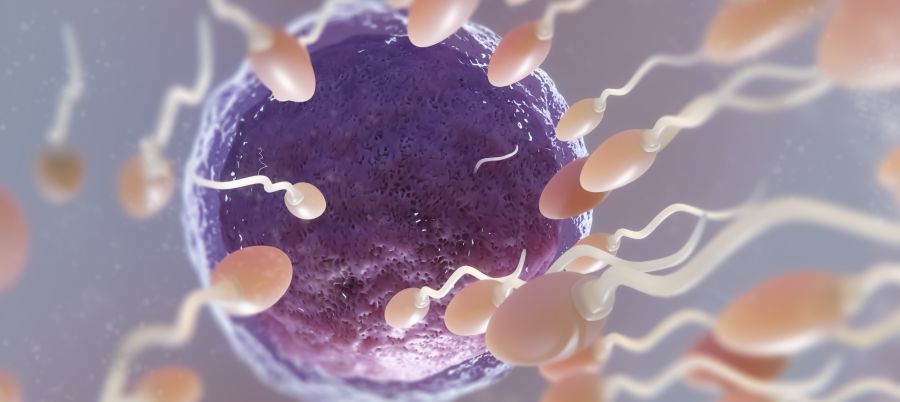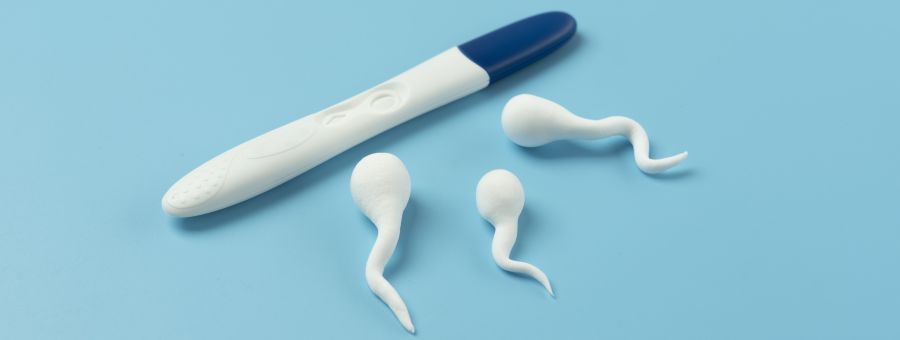Egg freezing, also known as oocyte cryopreservation, is a fertility preservation technique that allows you to freeze your eggs at their current quality for future use. This process gives you the freedom to delay pregnancy while maintaining your reproductive potential, offering peace of mind and expanded family planning options.
What Is Egg Freezing and How Does It Work?
Egg freezing is a medical procedure where your mature eggs are extracted, frozen using advanced vitrification technology, and stored for future fertilization. The process involves stimulating your ovaries to produce multiple eggs, retrieving them through a minimally invasive procedure, and preserving them at sub-zero temperatures.
The vitrification process used today achieves survival rates of over 95% when eggs are thawed, making it a highly reliable option for fertility preservation. Unlike older slow-freezing methods, vitrification prevents ice crystal formation that could damage the delicate egg structure.
The Complete Egg Freezing Process
Understanding each step of the egg freezing process helps you prepare mentally and physically for the journey ahead. The entire process typically takes 2-3 weeks from start to finish.
| Phase | Duration | What Happens | Your Experience |
|---|---|---|---|
| Initial Consultation | 1-2 hours | Medical history review, fertility assessment, AMH testing | Discussion of goals, expectations, and personalized treatment plan |
| Ovarian Stimulation | 8-12 days | Daily hormone injections to stimulate egg production | Self-administered injections, regular monitoring appointments |
| Monitoring Phase | Throughout stimulation | Ultrasounds and blood tests every 2-3 days | Track follicle growth and hormone levels |
| Trigger Shot | 1 day | Final hormone injection to mature eggs | Precisely timed injection 36 hours before retrieval |
| Egg Retrieval | 20-30 minutes | Minimally invasive procedure under sedation | Comfortable outpatient procedure with quick recovery |
| Vitrification | Same day | Eggs are rapidly frozen and stored | Your eggs are safely preserved for future use |
Preparing for Your Egg Freezing Cycle
Preparation begins several weeks before your actual cycle starts. You'll need to avoid certain medications, maintain a healthy lifestyle, and ensure you have support for the retrieval day. Optimizing your egg quality through proper nutrition and lifestyle choices can significantly impact your results.
Your fertility specialist will provide detailed instructions about medications to avoid, dietary recommendations, and lifestyle modifications that support optimal egg development during your cycle.
Who Should Consider Egg Freezing?
Egg freezing isn't just for women facing medical treatments that might affect fertility. Many women choose this option for various personal and medical reasons.
| Reason for Egg Freezing | Ideal Age Range | Key Considerations |
|---|---|---|
| Career or Education Goals | 25-35 years | Preserve fertility while pursuing professional objectives |
| Haven't Found the Right Partner | 28-38 years | Maintain reproductive options while seeking life partner |
| Medical Treatments | Any age | Chemotherapy, radiation, or surgery affecting ovaries |
| Family History of Early Menopause | 25-32 years | Genetic predisposition to diminished ovarian reserve |
| Personal Choice | 25-35 years | Desire for reproductive autonomy and planning flexibility |
The relationship between age and fertility is crucial to understand when considering egg freezing. Women under 35 typically have the best outcomes, but successful pregnancies have been achieved with eggs frozen at older ages.
Benefits of Egg Freezing
The advantages of egg freezing extend beyond simply preserving your fertility. This technology offers emotional, practical, and medical benefits that can significantly impact your life planning.
Reproductive Freedom and Peace of Mind
Perhaps the most significant benefit is the peace of mind that comes with knowing you have options. You can pursue career goals, travel, or wait for the right partner without the constant worry about your biological clock ticking away.
Studies show that women who freeze their eggs report reduced anxiety about their fertility timeline and increased confidence in their life choices. This psychological benefit alone makes the process worthwhile for many women.
Preserved Egg Quality
When you freeze your eggs, you're essentially stopping time for your reproductive cells. An egg frozen at age 30 maintains the same quality and genetic integrity as when it was retrieved, regardless of when you decide to use it years later.
This means that even if you use your frozen eggs at age 40, they carry the same pregnancy potential and lower genetic risk as they did when you were 30. This is particularly important given that egg quality naturally declines with age.
Insurance Against Future Fertility Challenges
Life is unpredictable, and fertility challenges can arise unexpectedly. Having frozen eggs provides a backup plan if you later experience difficulties conceiving naturally or face medical treatments that could impact your fertility.
| Benefit Category | Specific Advantages | Long-term Impact |
|---|---|---|
| Emotional Well-being | Reduced fertility anxiety, increased life confidence | Better mental health and life satisfaction |
| Career Flexibility | Pursue education, career advancement without time pressure | Enhanced professional and financial stability |
| Relationship Autonomy | Make partnership decisions without fertility pressure | Healthier relationship choices and timing |
| Medical Security | Protection against future fertility challenges | Maintained reproductive options regardless of health changes |
Success Rates and Realistic Expectations
Understanding success rates helps you make informed decisions about egg freezing. Success depends on several factors, with your age at the time of freezing being the most critical.
According to recent data from the American Society for Reproductive Medicine, women who freeze eggs before age 35 have the highest success rates. The live birth rate per thawed egg ranges from 2-12%, depending on age and individual factors (Practice Committee of the American Society for Reproductive Medicine, 2022).
| Age at Freezing | Eggs Needed for 70% Chance of Live Birth | Typical Eggs Retrieved Per Cycle | Estimated Cycles Needed |
|---|---|---|---|
| Under 30 | 8-10 eggs | 15-20 eggs | 1 cycle |
| 30-34 | 10-15 eggs | 12-18 eggs | 1-2 cycles |
| 35-37 | 15-20 eggs | 10-15 eggs | 2 cycles |
| 38-40 | 25-30 eggs | 8-12 eggs | 2-3 cycles |
| Over 40 | 30+ eggs | 5-10 eggs | 3+ cycles |
It's important to understand that these are statistical averages, and individual results can vary significantly. Your AMH levels and overall reproductive health play crucial roles in determining your specific prognosis.
Factors Affecting Success Rates
Several factors beyond age influence the success of egg freezing and future pregnancy outcomes. Understanding these helps set realistic expectations and optimize your chances of success.
Your ovarian reserve, measured through AMH testing and antral follicle counts, provides insight into how many eggs you're likely to retrieve. Women with higher ovarian reserves typically need fewer cycles to achieve their target number of frozen eggs.
The Egg Freezing Experience: What to Expect
Many women worry about the physical and emotional aspects of egg freezing. Understanding what to expect can help alleviate anxiety and prepare you for the journey ahead.
Physical Experience During Treatment
The hormone injections used during ovarian stimulation are typically well-tolerated. Most women experience mild side effects similar to PMS symptoms, including bloating, mood changes, and breast tenderness.
The egg retrieval procedure itself is performed under conscious sedation, so you won't feel any discomfort during the process. Most women describe the recovery as similar to menstrual cramps that resolve within a day or two.
| Treatment Phase | Common Experiences | Management Strategies |
|---|---|---|
| Hormone Injections | Mild injection site tenderness, bloating | Rotate injection sites, use ice before injecting |
| Ovarian Stimulation | Increased energy or mood changes, breast tenderness | Maintain regular exercise, stay hydrated |
| Pre-Retrieval | Feeling full or bloated, mild pelvic pressure | Wear comfortable clothing, avoid intense exercise |
| Post-Retrieval | Mild cramping, spotting, fatigue | Rest for 24 hours, avoid heavy lifting |
Emotional Journey and Support
The emotional aspect of egg freezing varies greatly among women. Some feel empowered and relieved, while others experience anxiety about the process or future outcomes. Both responses are completely normal.
Having a strong support system during your cycle can make a significant difference in your experience. This might include family, friends, or connecting with other women who have gone through the process.
Costs and Financial Considerations
Understanding the financial investment involved in egg freezing helps you plan appropriately. The costs include the initial cycle, medications, and ongoing storage fees.
At Avida Fertility, we believe in transparent pricing and offer various financing options to make egg freezing accessible. The investment in your fertility is an investment in your future choices and peace of mind.
| Cost Component | Typical Range | What's Included |
|---|---|---|
| Initial Consultation | $200-400 | Medical evaluation, treatment planning, counseling |
| Egg Freezing Cycle | $8,000-12,000 | Monitoring, retrieval procedure, laboratory fees |
| Medications | $3,000-5,000 | Hormone injections for ovarian stimulation |
| Annual Storage | $500-800 | Secure cryogenic storage of frozen eggs |
Many employers now offer fertility benefits that may cover egg freezing, recognizing it as a valuable employee benefit. It's worth checking with your HR department about available coverage.
Using Your Frozen Eggs: The Future Process
When you're ready to use your frozen eggs, the process involves thawing, fertilization through IVF with ICSI, and embryo transfer. Understanding this future process helps you make informed decisions about egg freezing today.
The thaw survival rate with modern vitrification techniques exceeds 95%, meaning nearly all your frozen eggs will survive the thawing process. These eggs are then fertilized with sperm through ICSI, and resulting embryos are cultured and transferred to your uterus.
Timeline for Using Frozen Eggs
There's no expiration date on frozen eggs when stored properly. Women have successfully used eggs frozen for over a decade. However, it's important to consider that pregnancy risks increase with maternal age, regardless of egg age.
Most fertility specialists recommend using frozen eggs before age 50, considering both pregnancy safety and the physical demands of pregnancy and parenting.
Choosing the Right Clinic for Egg Freezing
Selecting the right fertility clinic for your egg freezing journey is crucial for both your experience and outcomes. Look for clinics with extensive experience, advanced laboratory facilities, and comprehensive support services.
Key factors to consider include the clinic's success rates, laboratory accreditation, patient support services, and transparent communication about costs and expectations. Choosing the right fertility clinic can significantly impact your experience and results.
| Clinic Quality Indicator | What to Look For | Why It Matters |
|---|---|---|
| Laboratory Standards | CAP accreditation, advanced vitrification technology | Higher egg survival rates and better outcomes |
| Experience | High volume of egg freezing cycles performed | Expertise leads to better protocols and results |
| Support Services | Nursing support, financial counseling, emotional support | Comprehensive care improves your overall experience |
| Transparency | Clear communication about success rates and costs | Helps you make informed decisions |
Frequently Asked Questions About Egg Freezing
How many eggs should I freeze?
The number of eggs you should freeze depends on your age and reproductive goals. Generally, freezing 15-20 mature eggs gives you a good chance of future pregnancy success. Younger women may achieve this in one cycle, while older women might need multiple cycles.
Is egg freezing painful?
Most women find the egg freezing process manageable. The hormone injections cause minimal discomfort, and the retrieval procedure is performed under sedation. Post-retrieval cramping is typically mild and resolves quickly.
How long can eggs stay frozen?
Eggs can remain frozen indefinitely when stored properly. There have been successful pregnancies from eggs frozen for over 14 years. The vitrification process essentially stops all biological activity.
What happens if I never use my frozen eggs?
Many women find peace of mind in having frozen eggs even if they never use them. You can choose to donate them to research, donate to another woman, or discontinue storage. Having options is often worth the investment.
Can I freeze eggs if I have PCOS?
Women with PCOS can often be excellent candidates for egg freezing, as they typically have good ovarian reserves. However, the stimulation protocol may need adjustment to prevent ovarian hyperstimulation syndrome.
Will egg freezing affect my natural fertility?
Egg freezing doesn't impact your natural fertility. The eggs retrieved during a cycle would have been lost naturally that month anyway. The process doesn't accelerate the depletion of your egg supply.
Making the Decision: Is Egg Freezing Right for You?
Deciding whether to freeze your eggs is a personal choice that depends on your individual circumstances, goals, and values. Consider your current life situation, career plans, relationship status, and feelings about future parenthood.
The decision becomes easier when you understand that egg freezing is an insurance policy for your fertility. You're not committing to using the eggs; you're simply preserving the option to do so.
Many women describe feeling empowered and relieved after completing their egg freezing cycles. The process gives them control over their reproductive timeline and reduces anxiety about their biological clock.
Taking the Next Step
If you're considering egg freezing, the first step is scheduling a consultation with a fertility specialist. During this appointment, you'll discuss your medical history, undergo fertility testing, and receive personalized recommendations based on your unique situation.
Remember that timing matters in egg freezing. While it's never too late to explore your options, earlier intervention typically yields better results. Don't let uncertainty or fear prevent you from taking control of your fertility future.
The journey of egg freezing is ultimately about giving yourself choices and peace of mind. Whether you eventually use your frozen eggs or not, you'll have the satisfaction of knowing you took proactive steps to preserve your reproductive potential.
Considering egg freezing as part of your fertility planning? Avida Fertility is here to support and guide you on your fertility journey. Our experienced team uses the latest vitrification technology and provides comprehensive care throughout your egg freezing process. Reach out today for a personalized consultation and take the first step towards preserving your fertility with confidence.






.png)







.svg)
.svg)
